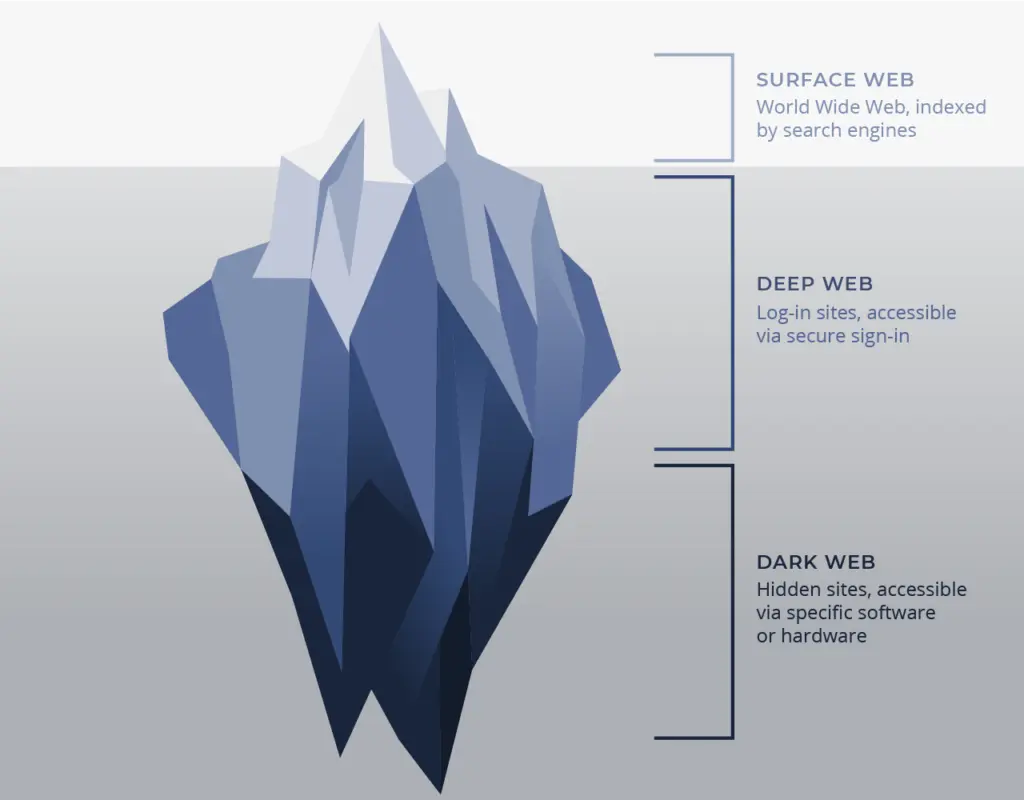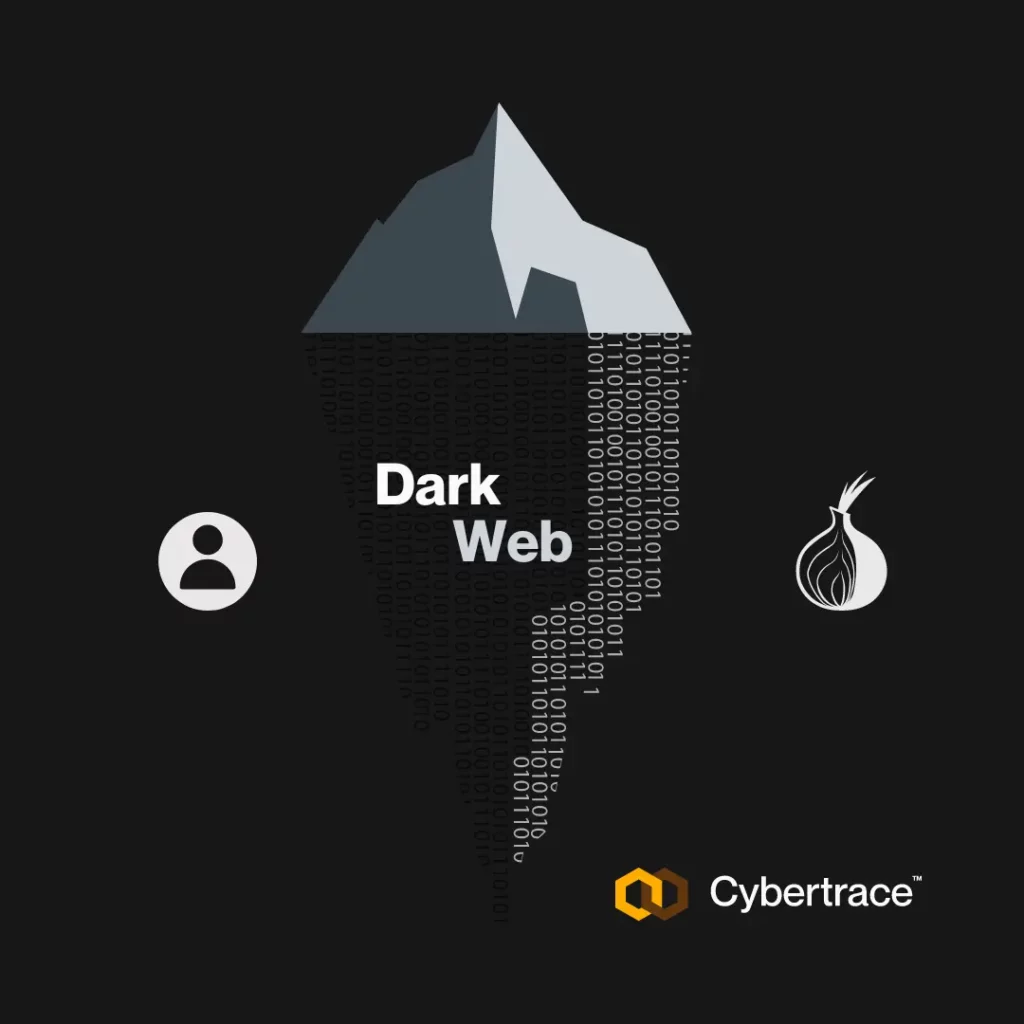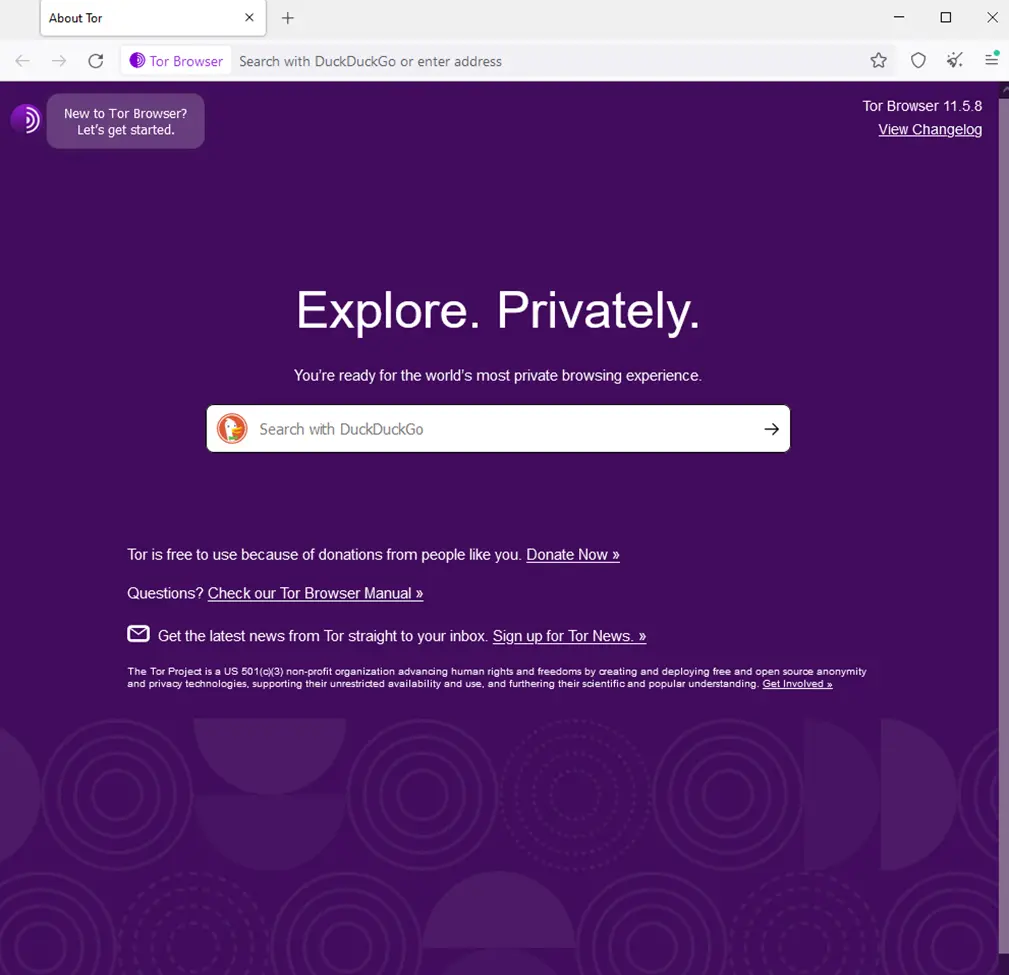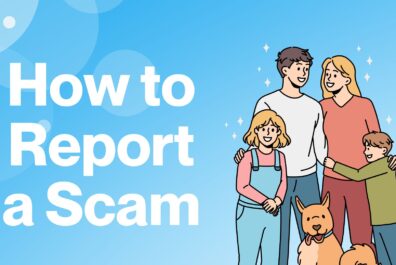Is the dark web dangerous? Definitely. It’s like a secret world where all kinds of bad things go down – from illegal deals to sneaky cyber attacks. And it’s not just about crime; there are also dangerous viruses lurking, ready to snatch your personal info.

Is the Dark Web and Deep Web Dangerous?
The deep web and the dark web are like hidden layers of the internet. The deep web is a vast portion of the internet that isn’t searchable through regular search engines like Google or Yahoo. It’s where all sorts of information live, like private databases and password-protected sites. You can’t just stumble upon it; you need specific access.
Now, the dark web is a part of the deep web, but it’s even more secretive. You can only get there with a special browser, like Tor. It’s like a secret club on the internet, where people can communicate anonymously and securely. But, it’s also a place where shady stuff happens. Think of it as a digital underground marketplace where illegal things are bought and sold – from stolen identities to drugs and even weapons.
So, while the deep web might hold harmless secrets, the dark web is where things get risky. It’s a digital realm where anonymity breeds opportunity, both for legitimate privacy concerns and illegal activities.
Dangers of the Dark Web
People can use Dark Web for:
- Illegal Transactions
On the Dark Web, users can access markets where illegal goods and services are bought and sold anonymously. This includes drugs, weapons, stolen data, counterfeit currency, and more. Engaging in such activities can lead to severe legal consequences, including arrests and prosecution.
- Cybercrime Hub
The Dark Web is a haven for cybercriminals who offer various illicit services, such as hacking tools, malware, and stolen credentials. Users who interact with these elements risk becoming victims of cyberattacks, having their identities stolen, or being defrauded financially.
- Scams and Fraud
Though, while some vendors on the Dark Web may claim to offer legitimate products or services, many are involved in scams and fraud. Users may encounter fake passports, counterfeit currency, non-existent merchandise, or services that are never delivered. Falling for these scams can result in financial losses.
- Harmful Content
The Dark Web hosts disturbing and illegal content, including child exploitation material, extreme violence, and terrorist propaganda. Exposure to such content can have serious psychological consequences for users, and knowingly accessing or distributing such material is illegal and may lead to legal repercussions.
- Privacy Breaches
Despite the anonymity provided by tools like Tor, users on the Dark Web still face privacy risks. Government agencies, hackers, and malicious actors may surveil users and exploit their personal information. As a result, this can lead to privacy breaches, identity theft, or even blackmail if sensitive information is exposed.
How to Protect Yourself on The Dark-Web
Without the right protection measures, your personal info and finances are at risk of being exploited by cybercriminals roaming freely in the shadows of the dark web. Using encrypted communication, strong antivirus software, and careful browsing habits is crucial to shield against these digital threats. Here’s some tips:
- Use a VPN:
A VPN encrypts your internet connection and routes it through a server in a different location, masking your IP address and location. This helps protect your identity and location from prying eyes on the dark web, making you appear to be in a different country and thus adding an extra layer of anonymity.
- Utilise Cybertrace’s Dark Web Monitoring Services:
If you suspect your personal information is compromised, consider Cybertrace’s dark web monitoring services. Cybertrace can conduct comprehensive dark web searches to identify any instances of your data being traded or sold. They provide real-time alerts if your information is detected, allowing you to take immediate action, mitigating the impact of potential breaches.
- Use a Password Manager:
Change your passwords regularly and use a password manager to generate strong, unique passwords for your online accounts. Avoid using the same password across multiple accounts to minimise the risk of unauthorised access.
- Enable 2FA:
Implement two-factor authentication (2FA) wherever possible, adding an extra layer of security to your online accounts. 2FA requires you to provide two forms of identification for account access. Additionally, consider multi-factor authentication (MFA) for stronger security. MFA involves providing multiple forms of identification, such as a password, fingerprint scan, or security token.
- Close Accounts and Report Identity Theft:
Act quickly if you notice any suspicious activity on your accounts or if you suspect identity theft. Close compromised accounts, report the incident to your bank, and file an identity theft report with relevant authorities. Prompt action can help mitigate the impact of identity theft.
- Consider Reaching Out to Cybersecurity Experts like Cybertrace
Cybertrace specialises in cyber investigations and provides dark web monitoring. You can even ask Cybertrace to run a background check on yourself. It’ll reveal what kind of info someone might dig up about you.
What is Tor Browser?

TOR stands for “The Onion Router”, Tor Browser uses the Tor network to safeguard your privacy and keep you anonymous online. It channels your internet traffic through three random relays in the Tor network, encrypting it as it goes. This stops your internet service provider and local network monitors from tracking what you do online. When you visit websites and services, they see a connection from the Tor network, not your real IP address, which helps keep you anonymous. Tor Browser also stops websites from figuring out who you are based on your browser settings and doesn’t hold onto your browsing history by default. Cookies only stick around for one session until you close Tor Browser or ask for a new identity.

Is the Dark Web illegal in Australia?
Accessing the dark web itself isn’t illegal; it serves as a platform for various illegal activities online. Dark web sites are not indexed and are inaccessible through conventional search engines, requiring specialised software like Tor. However,engaging in illegal activities on the dark web, such as purchasing illegal goods or services, is against the law in Australia and many other countries.
Summary and Conclusion
In summary, the dark web poses significant dangers, from illegal transactions to cybercrime and scams. While the deep web hides harmless secrets, the dark web’s anonymity fosters both legitimate privacy concerns and unlawful activities. Despite tools like Tor offering protection, users are vulnerable to privacy breaches and exploitation by cybercriminals. To stay safe, it’s crucial to use encryption, VPNs, password managers, and multi-factor authentication. Cybertrace’s dark web monitoring services help detect and fend off potential threats, while quick action and seeking help from cybersecurity experts are vital in defending against the risks of the digital world.
Contact Cybertrace
So, if you need a hand navigating these challenges, don’t hesitate to get in touch with Cybertrace. Additionally, Cybertrace employs a powerful AI tool called Darkivore, developed by Potech in partnership with Cybertrace. Darkivore can spot data leaks or breaches, brand impersonation, phishing scams, social media scams, malicious content, and fake domains, effectively shutting them down on the deep web and dark web.


